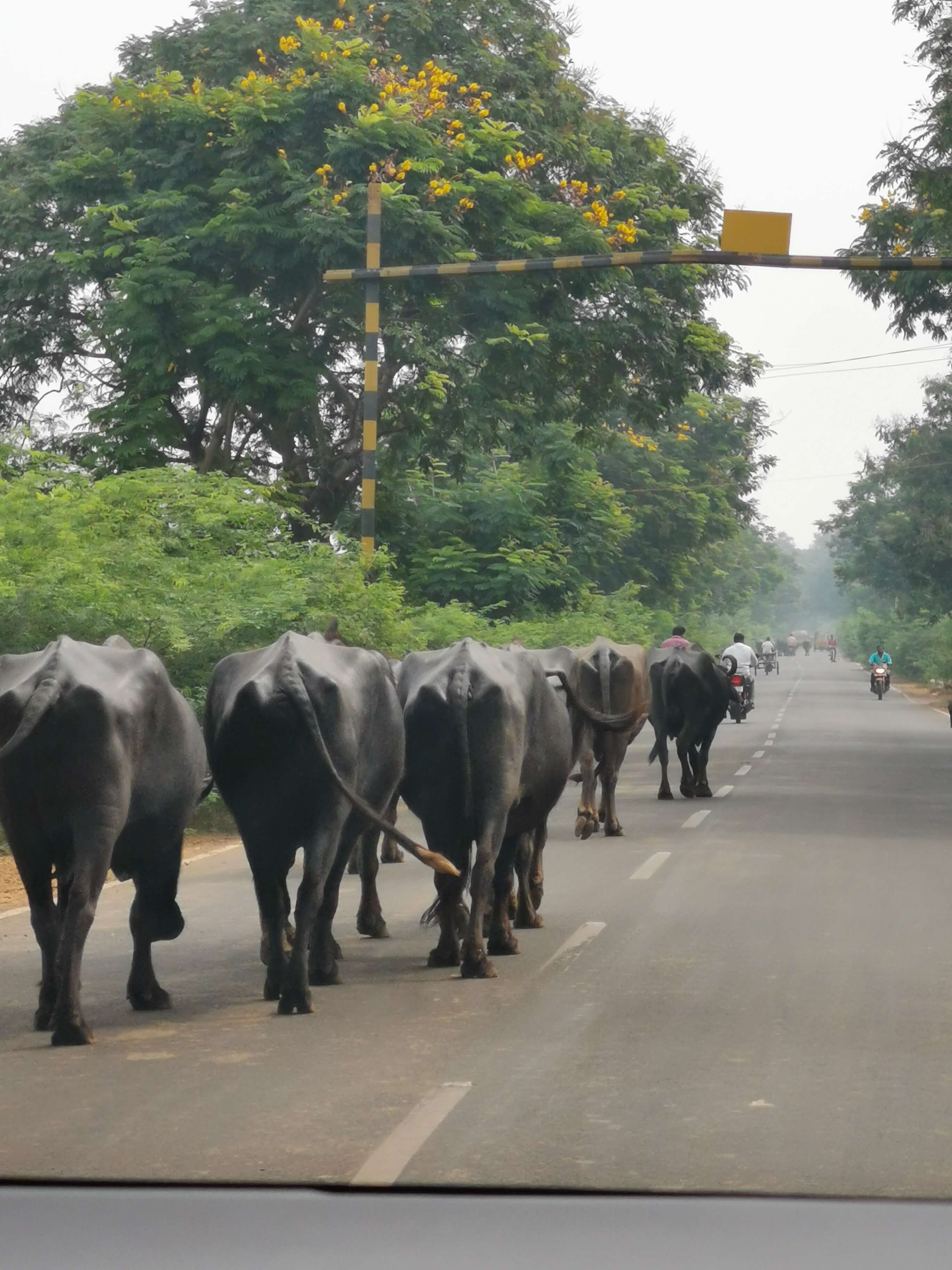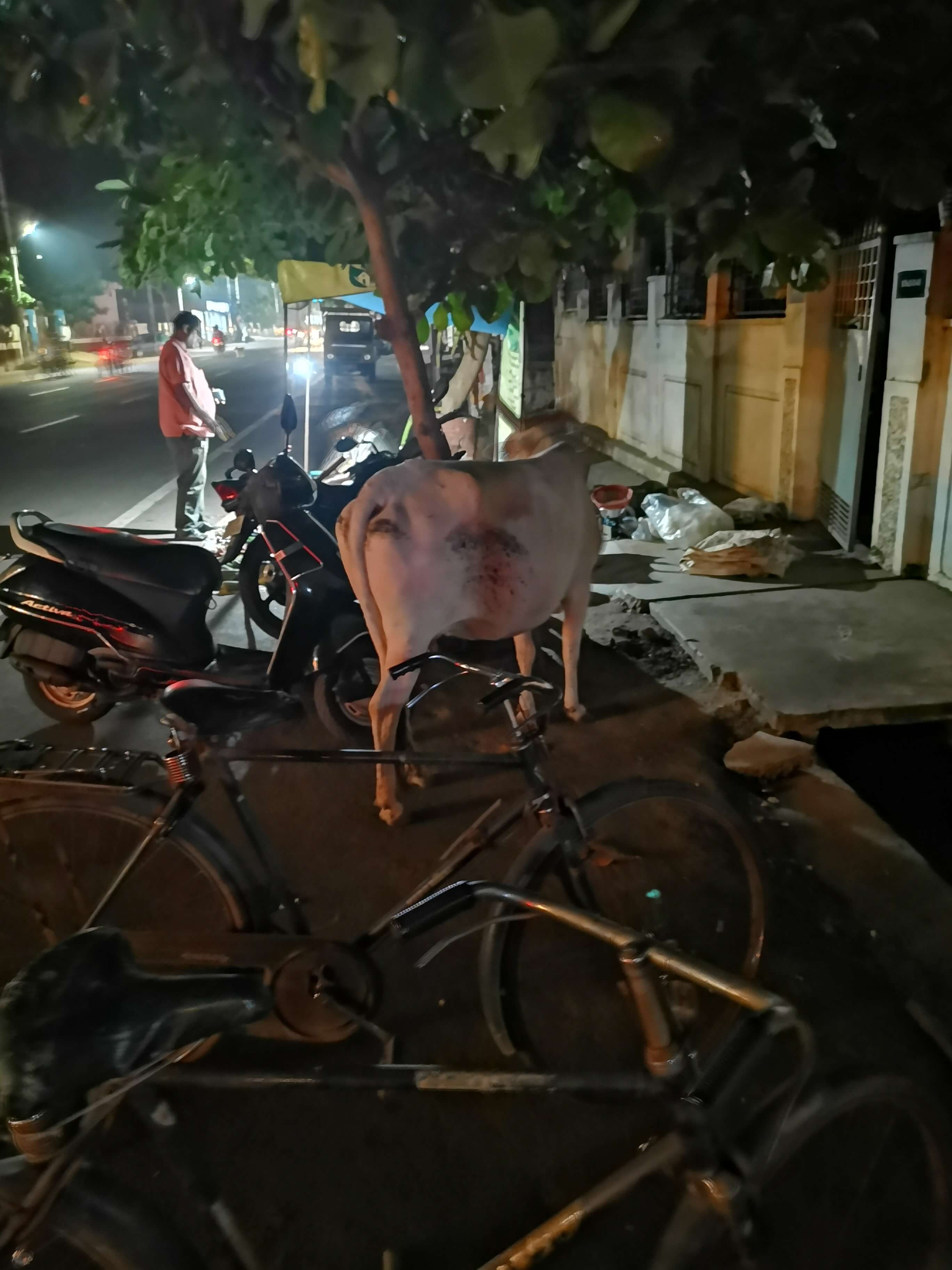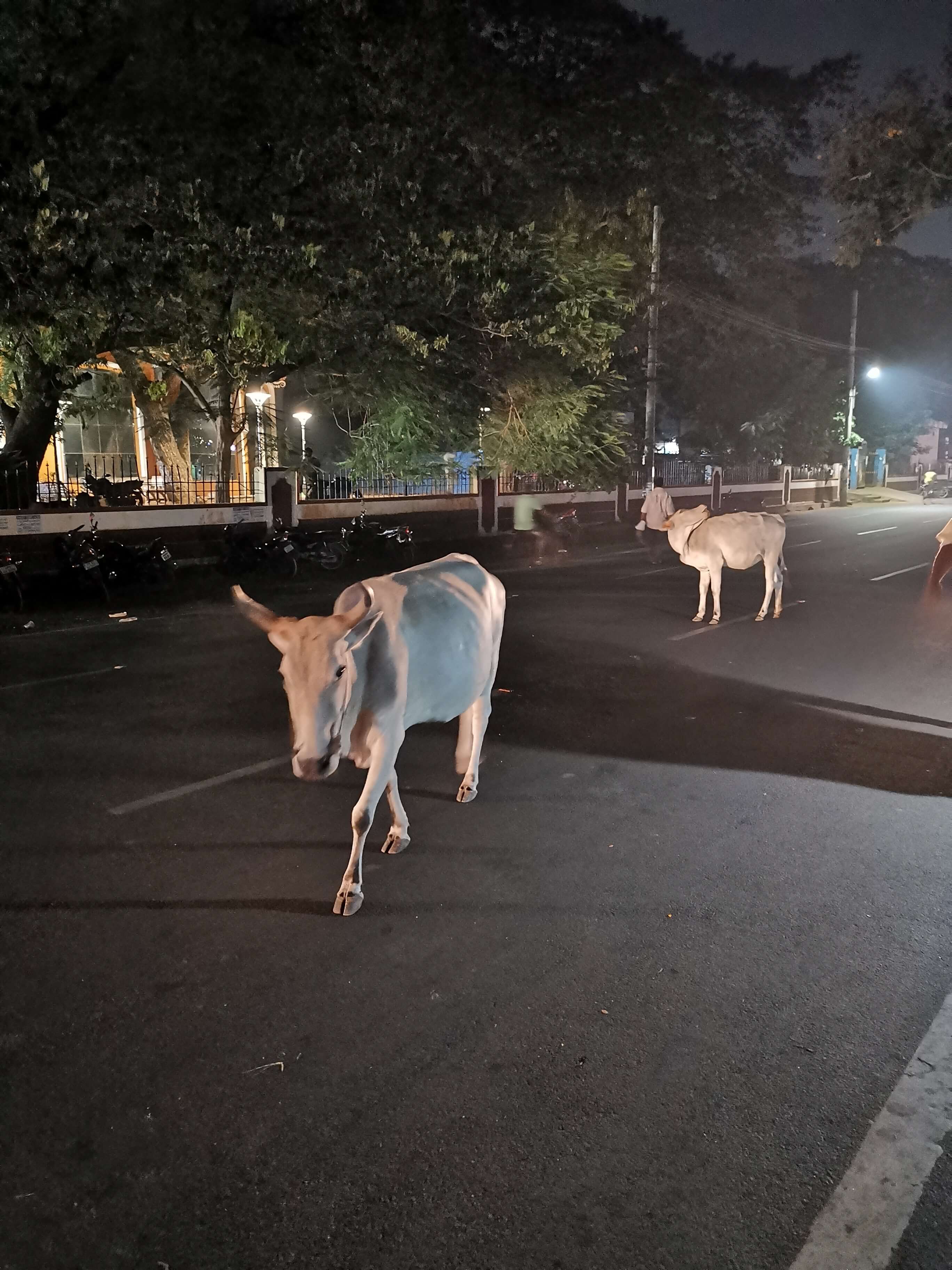India - Kakinada - holy cows?
Years of stay in Asia pass like paintings from behind the express train window, and it really happened that I got the chance to visit India.
The travel plan promised to be quite interesting. The visit began with New Delhi, the capital of India, then a jump, and basically a rail journey north to Ludhiana. It's quite close to the Himalayas. The state of Punjab, and basically the city of Ludhiana, is called the Manchester of India because of the large number of factories producing auto parts, sewing machines and bicycles. It is also known for the world-famous Agricultural University. After a few days spent in the north, fly south, specifically south-east to Kakinada, including the coast of the Indian Ocean and the beaches of the Bay of Bengal.
The story of my trip to India will definitely have many views. You will see several articles in all four categories of my blog.
However, I will start with a very simple thing.
Probably anyone who has heard or told about India, the first thing that comes to mind is the question of holy cows. So let me start the story about India by sharing with you some reflections on the holy cows in India.
I'm not a religious scientist but what comes to mind first when we talk about India is obviously Hinduism. "Karma", or the conviction that good, but also evil, returns to the person who does it, faith in reincarnation, or in passing through all forms and forms - from things, through plants, animals and human form on the path between earthly life and life eternal, in short, to the form of a deity, that is, a form of full reconciliation with god, are further associations. Only those religious inclinations create an aura of incredibleness and give us full reflection on our existence in the universe.
My personal reflection is very simple. I believe karma is coming back. Having been in Asia for so many years, I see and experience this feeling on a daily basis that by doing good, good is obtained. While doing evil, you can be sure that sooner or later evil will come back in various forms at the least expected moment.
So is the "holy cow" part of the pantheon of Hinduism?
I don't know if I will surprise you or disappoint you, but I will tell you briefly. No, the "holy cow" is not part of the Hindu pantheon, it is not a deity. In India, cows are not worshiped as a deity. For this, the cow occupies a very noble place in Hinduism, because it is considered one of the seven mothers of humanity.
And it is in this connection that he worships her by simply protecting these animals from barbarism and from killing.
It also provides a broad background for vegetarianism, which is widespread in India.
The symbolism of the "holy cow" dates back to the beliefs of the Indian, mystical Aryan times, that is, thousands of years ago, when it was believed that above the blue vault is a cow, which is the source of life. The sun and moon were seen as the calves of that cow and their light was considered the milk they fed on.
So, contrary to popular belief, Indians do not worship cows but treat them gently, without harming them, and, as I mentioned earlier, refuse to eat meat at all, and cows in particular.
Indian authorities are careful not to do cows to evil. This is even enshrined in the constitution, which is a secular constitution in India. The government and local authorities are legally obliged to provide protection for cows.
However, it is a different matter how it works in reality.
Great "holy cows"
And this is another matter. Nevertheless, in fact, killing cows is only allowed when they are old, sick and simply require removal from the environment.
Therefore, Indians really respect the cows, but this is not reflected in any form of worship as a holy deity. It is simply a belief based on the belief that the cow is considered to be the mother feeder of humanity. However, this does not lead to any special rituals.
So what's the situation on the streets?
I had the opportunity to experience in person how herds of cows moved freely on the roads, highways or city streets. This did not cause any sensation, but sometimes led to numerous, funny situations.
For example, the owner of a small roadside bar who sold roasted rice with vegetables in a curry spice simply had to chase away the cows who wanted to eat his culinary offer.
He used a bucket to splash the cows with water to make them leave.
There was no anger in it, no desire for revenge or anything like that. Simply put, the cows got in, as was said, to the detriment of knocking over tables and chairs. This meant that the bar owner had to somehow remove the cow. And because she was widely respected, he did it gently so as not to hurt her.
During the trip to Kakinada, cows walking in whole herds disturbed us in traveling by car. Several times we just had to stop the car to let it pass. Often they walked just along the road, blocking the lane and it was impossible to overtake them.
When walking around the city, be careful not to step into the "cow pies" left on the sidewalk.
However, the peace with which cows roam the streets, completely not afraid of cars, horns or people, in my opinion shows that in fact they are simply liked, no one harms them. It is clear that this Hindu belief, having its roots in the distant past, is reflected on a daily basis in the fact that people in India simply respect cows.
Under current legislation, the slaughter of cows in India is prohibited and Hindus refrain from eating meat, especially beef. Thus, they maintain the centuries-old tradition of recognizing cows as the mother parent of humanity.
In the light of the above divagations, the question of whether cows are holy in India, the correct answer is no, cows are not holy, cows are respected. This is one of those myths that is worth explaining at the beginning of the adventure in India. The remaining time will come later.
So, drink milk - you will live forever. At least until the next incarnation.
.
More articles


Pages created with WebWave













